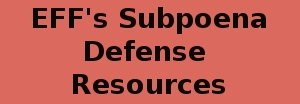
- Photo


 Some rights reserved by alexdecarvalho
Some rights reserved by alexdecarvalho
Thanks to your votes, New Media Rights is heading to SXSW interactive in Austin, Texas. On Tuesday March 11th at 12:30PM in the Driskill Hotel Ballroom we’ll be presenting our panel “Stand Up To Content Bullies, Know Your Copy Rights”.
At New Media Rights we know copyright laws are complicated, and they're often the reason why your videos, mobile apps, and other content may get taken down. "Fair use" is complicated, but it's often the reason you can get your content back up. Our panel will teach real-world best practices to use the law, YouTube's rules, and practical steps to fight back against content bullies.
Not only will we provide SXSW audiences with great best practices developed from our many years helping video creators but pop culture hacker Jonathan McIntosh will join us as our special guest creator. Johnathan is a pop-culture hacker and remix artist that we helped get his video Buffy vs Edward: Twilight Remixed put back up on YouTube after it was taken down by content bullies. McIntosh’s pro-feminist video is a metaphor for the ongoing battle between two opposing visions of gender roles in the 21st century. Over the past three years, this video has been used in law school programs, media studies courses and gender studies curricula across the world. Who better to talk about standing up to content bullies than a highly skilled content creator who has stood up to content bullies and actually won!
If you’re at SXSW please come by to hear what should be an amazing panel (if you’re not at SXSW you can follow our session on twitter using #nmr).





 On Thursday, May 15, the Federal Communications Commission (FCC) launched a 4 month rulemaking asking for "public comment on how best to protect and promote an open Internet."
On Thursday, May 15, the Federal Communications Commission (FCC) launched a 4 month rulemaking asking for "public comment on how best to protect and promote an open Internet." 
